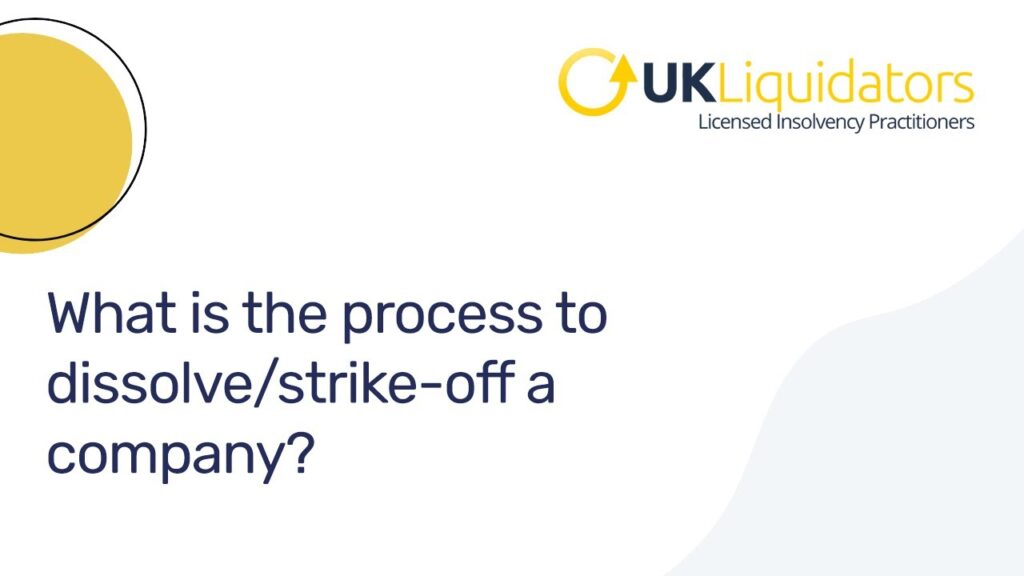Recognizing the Refine and Ramifications of Compulsory Strike Off Under Business Legislation
In the realm of company law, the process and effects of required strike off hold substantial weight for companies and their directors. Comprehending the details of why companies encounter such an outcome, the careful actions associated with the strike off procedure, and the significant implications for all parties entailed is vital in browsing the complex landscape of corporate administration. As we dig into the reasons behind required strike offs, the taking place procedures, and the succeeding consequences, a clearer image emerges of the profound influence it can have on people and entities alike.
Reasons for Compulsory Strike Off
Compulsory strike off under firm legislation is initiated by the governing authorities for specific reasons associated with non-compliance or operational irregularities. The main reason for a business to face required strike off is the failure to file yearly returns or financial declarations for an extended duration. This non-compliance suggests an absence of transparency and adherence to governing demands, raising worries about the business's financial wellness and accountability.

Process of Strike Off
Given the regulatory authority's initiation of obligatory strike off for different reasons, recognizing the procedure of strike off is critical for firms dealing with potential dissolution under company regulation. The procedure usually begins with the governing authority sending out notices to the company's licensed office address, informing them of the upcoming strike off. It is necessary for the business to address any kind of impressive issues, such as submitting past due documents or resolving impressive fees, within the defined timeframe to avoid dissolution.

Ramifications for Firms
What are the ramifications for firms facing required strike off under business regulation? Companies dealing with obligatory strike off may run into a number of significant ramifications. The firm ceases to legally exist, resulting in the loss of its business condition and the accompanying advantages and securities. This can lead to the failure to become part of agreements, conduct company, or go after lawsuits in the firm's name.
In addition, the business's properties at the time of strike off become residential or commercial property of the state, which can cause financial losses for shareholders and financial institutions. Investors may lose their financial investments, while creditors may have a hard time to recoup any arrearages owed to them by the struck-off company.
In addition, directors of the business may encounter incompetency from holding similar settings in other firms for a specific duration (what is compulsory strike off). This can taint their specialist reputation and limit their future organization opportunities
Consequences for Directors
Facing obligatory strike off under firm law can have severe ramifications for directors, influencing their future roles in other firms and potentially staining their specialist standing. Supervisors of a business encountering mandatory strike off may discover it testing to protect directorial settings in other firms in the future. Generally, the effects of required strike off for directors extend beyond the details firm in question, impacting their career leads and specialist trustworthiness in the long term.
Avoiding Compulsory Strike Off

Final Thought
To conclude, comprehending the process and ramifications of obligatory strike off under company law is essential for supervisors and firms to make sure conformity with policies. By understanding the reasons for strike off, the process entailed, and the repercussions for all parties involved, firms can take actions to prevent going through mandatory strike off. It is important for supervisors to be aggressive in preserving proper records and conference statutory obligations to avoid the threat of strike off.
Provided the regulative authority's initiation of compulsory strike off for numerous factors, understanding the process of strike off is critical for business encountering possible dissolution under firm legislation.What are the implications for companies facing compulsory strike off under firm law?Encountering obligatory strike off under company law can have extreme ramifications for supervisors, impacting their future duties in other firms and potentially tarnishing their expert standing. Directors of a business facing required strike off may locate it testing to secure directorial placements in other firms in the future.In conclusion, Find Out More understanding the procedure and implications of required strike off under company regulation is important for firms and directors to make sure conformity with guidelines.
Comments on “Secret Considerations Regarding Compulsory Strike Off and the First Gazette Notice”